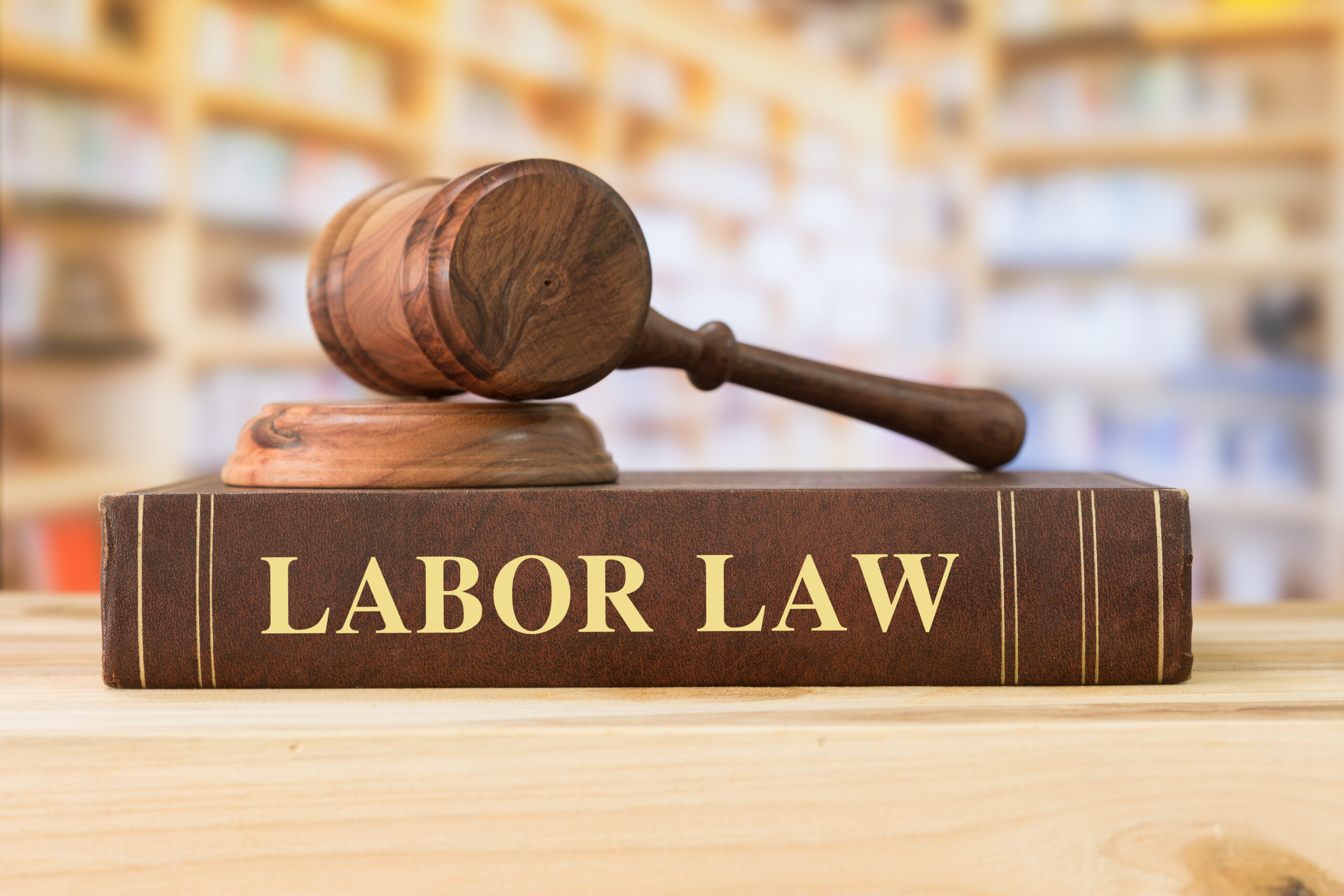Posts tagged Protecting the Right to Organize Act
Commentary ABC: PRO Act Reintroduction Is a Ruse To Appease Union Bosses
March 6, 2025 // “The reintroduction of the PRO Act displays continued disregard for the livelihoods of small business owners, employees and independent contractors,” said Swearingen. “While Congress has long rejected the PRO Act and its provisions, these legislators continue to pursue failed policies and attack business models and fundamental freedoms that have fueled entrepreneurship, job creation and opportunity for the American worker. “The PRO Act and its harmful provisions would have a devastating impact on the U.S. construction industry and cause significant harm to the nation’s economy,” said Swearingen. “Further, the bill’s provisions would significantly raise economic costs for the nation’s 27 right-to-work states in an effort to increase union power at the expense of worker freedoms and small businesses.”

Lawmakers Should Not Let a Lame Duck Pack the NLRB
July 28, 2024 // For instance, on her watch, Chair McFerran has allowed workplace discrimination to be weaponized for pro-union activities. This decision has subjected workers to traumatizing harassment, while simultaneously barring employers from intervening. According to a report by the Institute for the American Worker, McFerran’s NLRB has used Section 7 of the National Labor Relations Act (NLRA) to excuse “racist rhetoric, sexist harassment, and vulgarity in the workplace, as long as it takes place in the context of ‘union activity.’”
Opinion: This Looming Regulatory Change Is Endangering Your Entrepreneurial Livelihood. Here’s What You Can Do About It.
March 7, 2024 // On the independent contractor language, the U.S. Department of Labor acknowledges in its new rule that there may be "conceptual overlap" with the ABC Test's most harmful section to independent contractors. The U.S. Chamber of Commerce says the "DOL's claim that the regulation does not reflect the ABC Test leaves something to be desired." The independent contractor CRA was introduced in the House and Senate in early March with more than 70 co-sponsors and needs more in both chambers to advance. Federal lawsuits have been filed against both federal agencies, trying to stop these policy changes through the courts. But, given the snail's pace with which the wheels of justice can turn, it's important for Congress to act.
ACTING US SECRETARY OF LABOR JULIE SU ISSUES STATEMENT ON ANNUAL UNION MEMBERSHIP DATA
January 29, 2024 // “The Bureau of Labor Statistics reported an increase in union membership, with 139,000 more union members in 2023 than in 2022, meaning this country has 400,000 more union workers than we had in 2021. The gains under the Biden-Harris administration underscore President Biden’s commitment to being the most pro-worker, pro-union president in history. “We have seen large private sector increases in unionization among health care workers, transportation and warehousing workers, and in educational services. These are workers who recognize that they have power and are organizing to use that power. Workers in health care, auto manufacturing, transportation, entertainment and more have delivered big wins at the bargaining table in the past year.

Opinion: FACT CHECK: Does Unionization Have Positive Spillover Economic Effects?
September 21, 2023 // Most notably, a 2021 Harvard University report found that right-to-work states boasted more positive spillover effects. Compared to unionized areas, right-to-work (RTW) states boast 1.6% higher employment, 1.4% higher labor participation, and 0.34% lower disability receipts. The study also found RTW laws are “associated with lower childhood poverty rates and greater upward mobility”—with “children at the 25th percentile of the parental income distribution during childhood have a 1.7 percentage point higher probability of reaching the top income quintile during adulthood if they grew up in a RTW location.” Greater upward mobility is also observed in states that give workers latitude over joining a union or not. Moreover, right-to-work laws are shown to improve the well-being of both non-unionized and unionized workers.

My job, my choice: The National Labor Relations Act does not require unionization
September 7, 2023 // “[A]mbiguities of language and the absence of enforcement powers [in the NIRA] have enabled a minority of employers to deviate from the clear intent of the law and to threaten our entire program with destruction,” Wagner said in a March 11, 1934, New York Times op-ed. He repeatedly stressed it had to be the individual worker’s decision to join a union, and bristled at the claim that the Recovery Act pushed workers into unions. “[T]his bill does not do anything of this kind except that it does make a worker a free man so he may decide whether he wants a union or not,” and, Wagner said during the Senate hearings on the legislation, “if he wants one, what particular union he wants to represent him, or whether he wants to remain unorganized.” The text of the NLRA does state that federal policy favors “encouraging the practice and procedure of collective bargaining,” but those words are almost always taken out of context. They follow a long preamble about “eliminat[ing] the causes of certain substantial obstructions to the free flow of commerce.”

COMMENTARY: What Big Labor Doesn’t Want You to Know This Labor Day
September 5, 2023 // "Yet, instead of adapting and finding ways to still provide value to workers, unions have maintained strictly seniority-based compensation structures and rigid workplace rules that reduce workers’ productivity, pay, and flexibility. That ends up hurting workers who desire autonomy and flexibility. For example, young workers who are parents typically lack the seniority needed to choose the hours they want. And workers who want to put in extra effort to earn a pay raise have little incentive to do so because most union contracts prohibit employers from giving employees performance-based pay raises or bonuses that exceed the union-negotiated pay scales."
Organized Labor Is Causing ‘Union Joe’ Biden A Lot Of Headaches
July 28, 2023 // “Biden likes to look pro-union, he’ll turn on those running the unions when it’s politically advantageous—as it was during the railway strike,” David Osborne, fellow at the Institute for the American Worker, told the Daily Caller News Foundation. “Union executives rarely take issue with it, because doing so would threaten their own political celebrity. Unfortunately, rank-and-file employees are caught in the middle, and they’re the ones with the most to lose when negotiations break down or workers go on strike. The rank-and-file workers will blame Biden, but because they represent such a small percentage of the electorate—and their union executives will endorse Biden anyway—Biden won’t know about it and won’t care.”
DOL Nominee Julie Su An Aggressive Enforcer, Inept Manager
March 8, 2023 // She was also a supporter of the state’s disastrous AB5 law, which was intended to force rideshare companies and other so-called gig economy businesses to treat their workers as regular employees rather than short-term workers. Su tweeted in 2019 that the law was “about preserving labor standards that are key to quality jobs in California.” There was little evidence the law wanted by or beneficial to rideshare drivers. Meanwhile numerous other traditional freelancing jobs were disrupted by the law, forcing state legislators to amend the bill to carve out many professions. Eventually state voters would pass Proposition 22 which exempted rideshare drivers from the law, stripping out the main thing its advocates wanted. The law contributed to California lagging behind the rest of the nation in jobs during the pandemic. Ironically, Su, should she be confirmed, will have another shot at it. The department already has a rulemaking in the works to go after employers for “worker misclassification” i.e., classifying them as freelancers rather than regular employees for whom the company must pay overtime and unemployment –a national version of AB5, with all the problems of that law.

How To Empower Millions of Independent Workers
January 3, 2023 // Given millions of Americans' clear preference for independent work, and given the economic benefits of these arrangements, state and federal legislators should reduce the regulatory and tax burdens on both independent workers and gig platforms.
